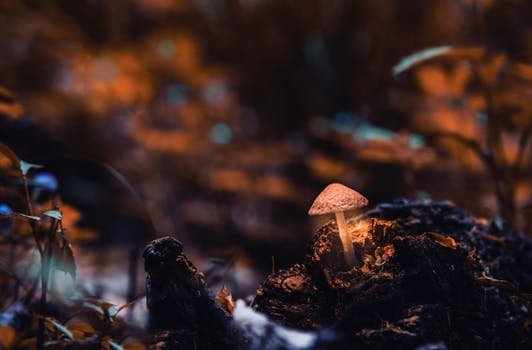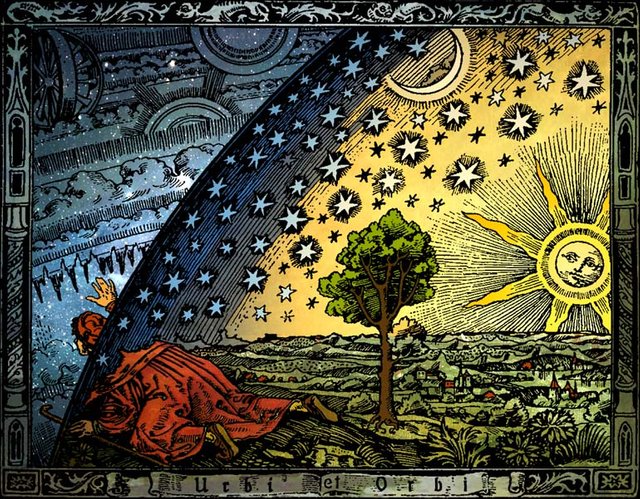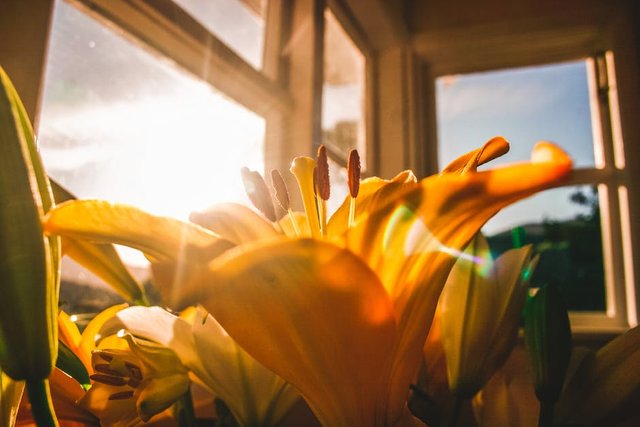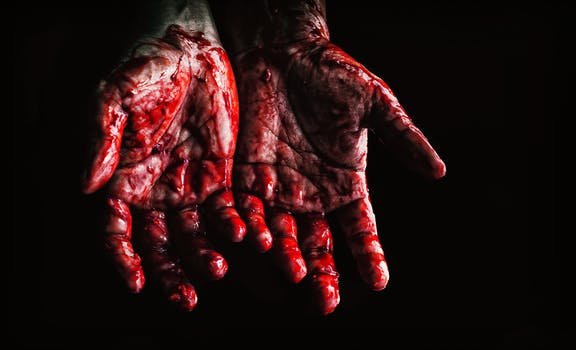
A friend told me a story recently.
For about a six-month period, his first thought upon waking and his last thought before sleeping was about killing himself.
This was the latter third of a roughly eighteen-month period in which he had hardly managed to crack a smile. "Everything sucked. Nothing brought pleasure," he said.
How he got into such a state is beyond the scope of this article, and not entirely clear in any case. But there he was. "Trapped in [his] head. A mental prison. Endless negative ruminations."
Not a good head to be trapped in.
“Sleep was my only respite,” he said. “An eternal sleep, as eerie as that sounds, seemed preferable to waking life.”
He didn't know anything about marijuana at the time, but he wondered if "perhaps it could give [him] the courage to finally do the deed.” He eventually tried it. To his surprise, it had something of the opposite effect.
“[He] started smiling again. Funny things were funny again. Music and beauty brought pleasure again.”
Nevertheless, marijuana did not cure his depression. While it "certainly diminished symptoms, the underlying depression and existential angst largely persisted, and suicidal thoughts would occasionally return."
But then he tried magic mushrooms.

“It was only a moderate dose. But it was glorious.”
He “had no idea how joyous conscious experience could be” and remembered describing the experience as "a slice, or preview of heaven.”
He noticed he was far more chipper in the weeks and months following the experience. About twelve months and a handful of "trips" later, he realized he no longer had depression whatsoever. And he “was strangely confident it would never return.”
He explained he felt he “had somehow built up an unassailable immunity to depression.” His magic mushroom experiences “had revealed life as so beautiful, so precious—so sacred—and so endlessly fascinating that extended negative ruminations seemed simply impossible now.”
“Magic mushrooms freed from me from mental prison, and I could not find my way back if I tried,” he said.

The events he described above took place over a decade ago. And, despite being fairly adept at wiggling himself between rocks and hard places, he said that, indeed, he hadn't suffered a hint of depression in the intervening years.
So, hooray for my friend and feel-good stories. Now here is a feel-bad story:
Imagine you have a severe peanut allergy. And imagine further you are at an office party and are accidentally but erroneously told a certain dish was peanut-free. You partake.
Within moments your stomach is churning. You begin to have trouble breathing. Dizzy, you fall to the floor. Realizing what has happened, you begin to crawl into the kitchen area where you keep a life-saving EpiPen.
Your boss is standing by the relevant cabinet. He sees you and realizes what you are after. He grabs the EpiPen from the cabinet, drops it to the floor, and smashes it underfoot. He picks up the pieces and tosses them into the trash.
Lying on the floor, you breathe your last strained breath while staring at the trash bin.
Is that murder?
I don't know. But its incredibly fucked up. And it's analogous to what the United States government has done to hundreds of thousands of people over the last five decades by obscuring, demonizing, and criminalizing psychedelic drugs, our most effective treatments for depression, PTSD, and addiction.

My friend's story above is likely not unique. Five years of data from the National Survey on Drug Use and Health has shown that people who have used psychedelic drugs experience far less psychological distress and suicidal thoughts.
A handful of recent clinical trials have demonstrated psilocybin's unparalleled ability (the active component in so-called magic mushrooms) to treat depression. After just one or two psilocybin experiences, nearly all participants in these studies saw marked and sustained improvement. Moreover, most describe their experience as no less than among the most spiritually significant and personally meaningful of their lives.
One recent study focused on severe treatment-resistant depression in particular. The results were again spectacular. All patients saw an immediate, significant, and sustained reduction of symptoms. A majority achieved complete remission.
A similar study using ayahuasca, the Amazonian psychedelic brew, reported similarly impressive results.
With psychedelic drugs, "treatment-resistant" depression is no longer a thing.
The recent psilocybin study, which included taking brain images before and a day after the treatment, was led by Dr. Robin Carhart-Harris, who explains:
Several of our patients described feeling ‘reset’ after the treatment and often used computer analogies. For example, one said he felt like his brain had been ‘defragged’ like a computer hard drive, and another said he felt ‘rebooted’. Psilocybin may be giving these individuals the temporary ‘kick start’ they need to break out of their depressive states and these imaging results do tentatively support a ‘reset’ analogy.
In a moving six-month follow-up to this study, patients described their progress in terms of a "change from disconnection (from self, others, and the world) to connection" and a "change from avoidance (of emotion) to acceptance."

Roughly seven percent of Americans, over sixteen million people, will experience a major depressive episode this year. Conventional treatments, such as selective serotonin reuptake inhibitors, work little better than placebo and forty to sixty percent are completely unresponsive to these drugs.
The United States is currently suffering a suicide epidemic. The highest rate in decades, 45,000 Americans took their own life in 2016. It is estimated that a million people a year commit suicide globally.
And the most effective treatments for depression are illegal. And this isn't an accident.
While we are currently enjoying a "psychedelic renaissance" with experts heralding psychedelic-assisted psychotherapy as a potential "paradigm shift" in mental health, knowledge of the unique therapeutic value of psychedelics is not new.
In 1970, when Congress passed the Controlled Substance Act and placed all of the classical psychedelics in Schedule 1 (and thus proscribed physicians from using them in their practice), over a thousand clinical papers had already been published attesting to the safety and profound efficacy of psychedelics. The Schedule 1 designation ("no currently accepted medical use" and "lack of accepted safety for use") was not an oversight. It was fraudulent.
The United States then exported its drug war by pressuring other nations to outlaw psychedelics.
The result, naturally, has been an immeasurable amount of avoidable suffering. The near-global, United States government-initiated false demonization and unjust criminalization of psychedelics is a crime against humanity of untold magnitude.
Blood is indeed on their hands. And its accumulating.
Thank you for writing about this important subject Andrew. I think that we really are on the verge of a rennaisance with these medicines now :)
Downvoting a post can decrease pending rewards and make it less visible. Common reasons:
Submit
.
Downvoting a post can decrease pending rewards and make it less visible. Common reasons:
Submit
Great - glad you enjoyed it and I'm happy to support you.
Try to avoid link dropping though, as quite a lot of people just see it as spamming, even if it's a good article like this and you can get downvoted.
It's partially because there have been lots of phishing links going round, so you can get tarred with the same brush.
You can always mention your article in a comment without putting the link in.
Have fun :)
Downvoting a post can decrease pending rewards and make it less visible. Common reasons:
Submit
Great article. Having suffered depression for many years and even attempting suicide,this would have been great knowledge for me. I am m no longer permanently depressed by I still have bad days. I actively sort ways to alleviate worry and anxiety. "How to Stop Worrying and Start Living." By Dale Carnegie is a great book for removing worry. The best out there actually! But i think it is time to get the courage to try psychedelics and follow in the paths of our tribal ancestors!
Downvoting a post can decrease pending rewards and make it less visible. Common reasons:
Submit
They can be a great medicine. However, remember that the integration afterwards is very important as well to really gain the most from the experiences.
Best wishes for your journey.
Downvoting a post can decrease pending rewards and make it less visible. Common reasons:
Submit